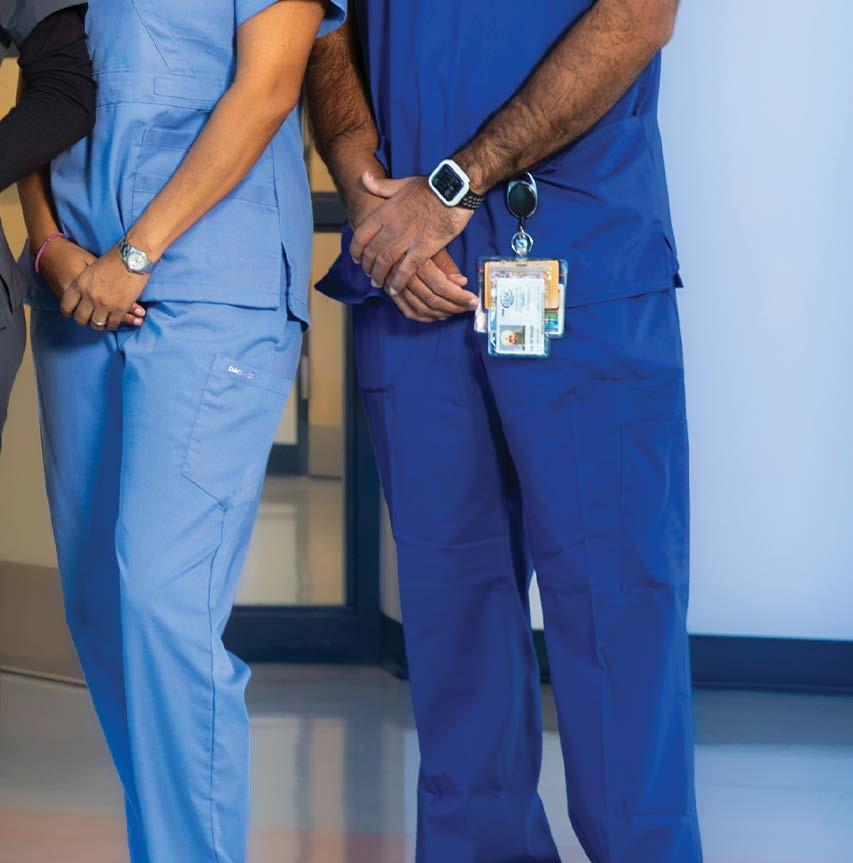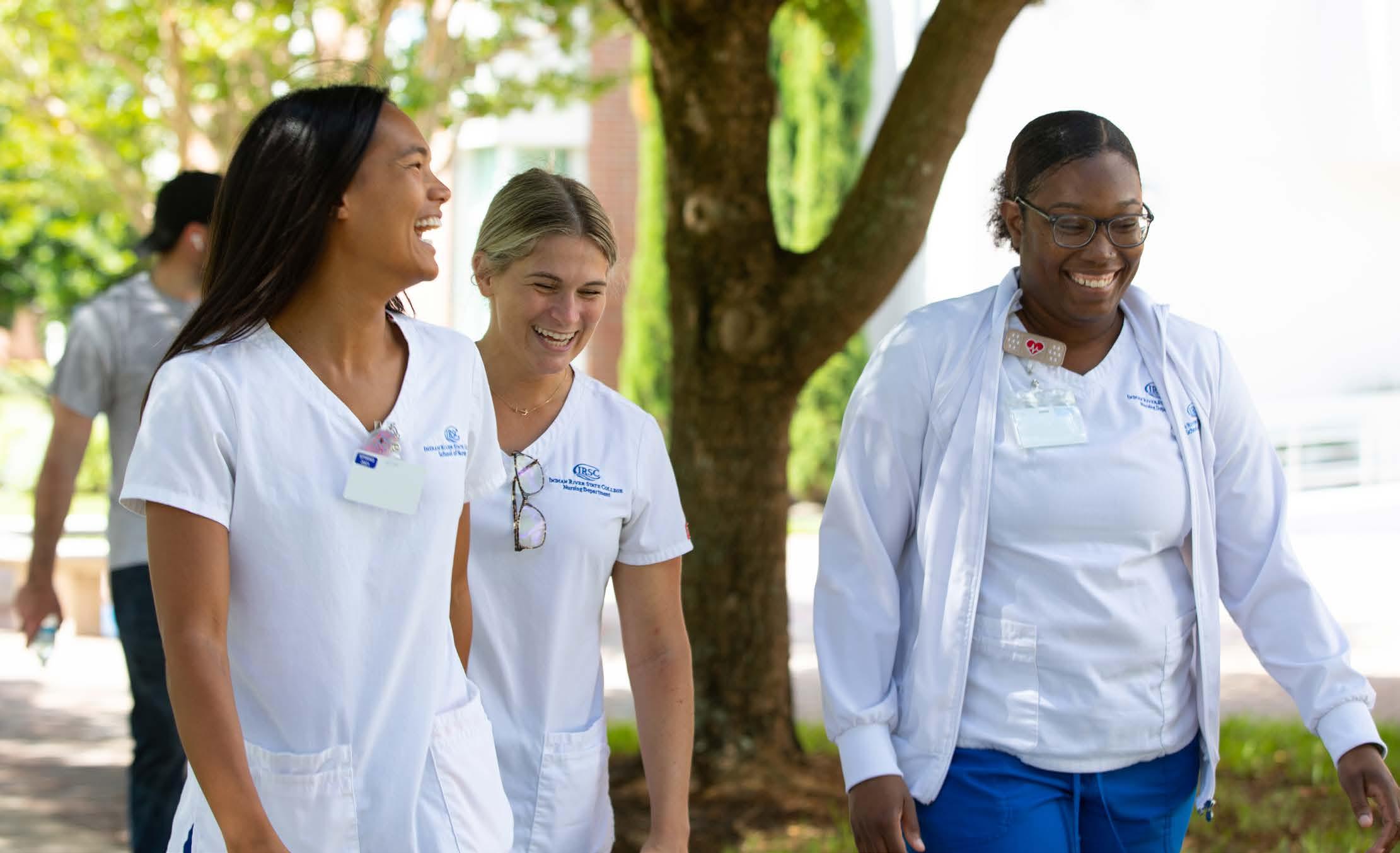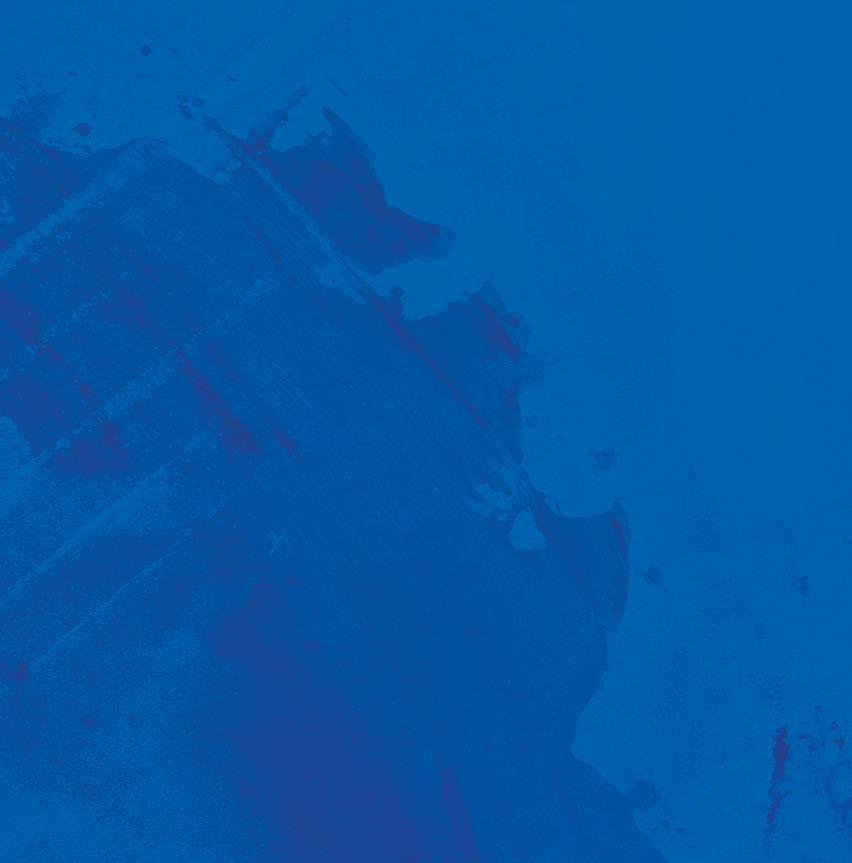































We are delighted that you are interested in pursuing a career in Health Science. IRSC offers more than 20 different programs in Health Science (in 19 areas of study) for you to explore, from fast-paced emergency care to patient care in a medical office environment to careers in healthcare administration.
All health science programs at IRSC are selective admissions, meaning a limited number of students are accepted each year. Selection is based on specific criteria, which could include GPA, prerequisite coursework, shadowing hours, etc. Find the career that is right for you by exploring the pages that follow and by attending free information sessions, which are offered regularly at IRSC campuses.
The IRSC Health Science Division and School of Nursing offer short-term training programs, certificate programs, Associate in Science degrees and Bachelor of Science degrees. Now is the perfect time to meet with an IRSC advisor at any one of our five campuses in Fort Pierce, Okeechobee, Port St. Lucie, Stuart and Vero Beach to plan which program(s) to apply for and to review the selection criteria to determine your eligibility.


We wish you the best of luck on your educational journey and hope to see you soon!
Sincerely,











1.Complete the Application for Admission at irsc.edu.
2. Submit your high school and all previous college transcripts.
3.Apply for nancial aid at studentaid.gov.



4. Connect with your Student Success Coach to complete admissions and register for classes.

Bachelor’s Degree programs and selective admissions programs have additional admissions criteria. Consult the online Course Catalog at irsc.edu for speci c program requirements.
For assistance, call 1-866-792-4772, or visit your nearest campus.





Requires 3.0 or higher GPA
Dental hygienists work with dentists to help patients maintain and improve their oral health and quality of life. They examine the mouth; scale, root plane, clean and polish teeth; and expose and interpret x-rays. Students completing their IRSC degree can expect to take the Dental Hygiene National and State Licensure Board examinations and seek employment in a private dental office, public health agency, school system, hospital or clinic.
Central service technicians enjoy rewarding careers as part of the behind-the-scenes healthcare team in hospitals and outpatient clinics. They play a vital role in preventing infection by sterilizing, cleaning, processing, assembling, storing and distributing medical supplies. Graduates earning the IRSC Central Service Technology certificate are able to take the Certified Registered Central Service Technician national and international exams and seek employment with a hospital or outpatient surgery center.
100% of 2022 IRSC Dental Hygiene program graduates passed the National Board for Dental Hygiene Examination (NBDHE).*




* Recent graduate outcome data. Not a guarantee.


Emergency Medical Technicians (EMTs) enjoy rewarding careers—helping to save lives in the event of illness or injury in response to emergency calls. They assess injuries, administer emergency medical care and transport injured or sick persons to medical facilities.

On average, 4-out-of-5 IRSC students enrolled in the Emergency Medical Technician program pass the National Registry of Emergency Medical Technicians (NREMT) exam on the first full attempt.*

Paramedics administer first aid treatment or life support care to sick or injured persons in pre-hospital settings. They assess the nature and extent of illness or injury to establish and prioritize medical procedures and perform emergency diagnostic and treatment procedures. Paramedics with a degree in Emergency Medical Services often obtain leadership and management positions.
The Paramedic program of Indian River State College is accredited by the Commission on Accreditation of Allied Health Education Programs (www.caahep.org) upon the recommendation of the Committee on Accreditation of Educational Programs for the Emergency Medical Services Professions (CoAEMSP).
Within 12 months of graduation, 100% of IRSC Paramedic program graduates are either employed full- or part-time as a paramedic, continuing their education or serving in the military.*
* Recent graduate outcome data. Not a guarantee.



Health navigator specialists enjoy rewarding careers as part of the healthcare team in a variety of settings. They facilitate and assist patients as a resource for all aspects of the patient experience including advocacy. Health navigator specialists are trained to coordinate health services and help patients overcome barriers to quality care.





Indian River State College leverages new opportunities for flexible, web-based course delivery, providing online access to academic programs for campus-based students, as well as off-campus and distance students.


IRSC offers hundreds of individual web-based courses and twelve web-based degrees; among these are the A.S. Degree in Health Information Technology and the coursework for the Bachelor’s Degree in Nursing. In-person, clinical components are required.


IRSC Online courses and degree programs are nationally certified through Quality Matters (QM) and created with a consistent format, so students can focus on learning and easily navigate through the material.
Upon successful completion of the Health Navigator Specialist Certificate, students seek employment in various areas including hospitals, long-term care facilities and private home care. Health navigators work in a non-clinical role as the liaison between patients and providers to ensure that patients and families receive proper care, access to appropriate resources and optimal health outcomes. * Recent graduate outcome data. Not a guarantee.
“I want to lead change in the healthcare world. My goal is to become a hospital CEO.”
Requires 2.5 or higher GPA
Health services managers are trained as entry-level health professionals to generally coordinate the front office operations for a clinic or physician’s office. Typical duties include working with the public to set appointments, maintain confidential medical records, and facilitate some billing or accounting functions. Salaries vary depending on a candidate’s work history and degree.




Requires 2.5 or higher GPA
Healthcare managers are trained to plan, direct and coordinate medical and health services. They keep healthcare operations running smoothly by making decisions, solving problems, monitoring resources, analyzing information, implementing healthcare programs and coordinating the work of others.
Healthcare managers typically seek employment in a hospital, clinic, physician’s office, public health agency, long-term care facility or laboratory.

“Indian River State College has smaller-size classes and blended classes, and the professors take the time to get to know you as a person.”

 David Forest, Alumnus Director of Rehab Services, Lawnwood Regional Medical Center and Heart Institute
David Forest, Alumnus Director of Rehab Services, Lawnwood Regional Medical Center and Heart Institute









Healthcare informatics specialists enjoy rewarding careers as part of the behind-the-scenes healthcare team in hospitals. They play a vital role in designing, developing and accessing ways to collect, share, standardize and integrate data and information systems. Graduates earning the Healthcare Informatics Specialist certificate may be eligible to take the AHIMA Certified Health Data Analyst (CHDA) exam and seek employment with a hospital, outpatient surgery center, clinic, physician’s office or government agency. Some can even work from home.

Home health aides enter private residences to support patients’ needs including observation, record keeping, nutrition, household management, safety and maintenance of daily living activities. They are an essential part of the healthcare team that assists patients in regaining their independence. This course is designed for Certified Nursing Assistants (C.N.A.s) who wish to expand their skills and credentials.
Medical assistants enjoy rewarding careers in one of the fastest-growing healthcare careers. Under the direction of a physician, they take and record vital signs and medical histories, prepare patients for examination, draw blood, administer medications and injections, perform minor surgery, schedule appointments, maintain medical records, and assist with billing and coding. Upon completion of the program, students seek American Association of Medical Assistants (AAMA) national certification, and employment in a physician’s office, clinic or other healthcare facility.




Medical coder/billers are part of the behind-the-scenes healthcare team trained to process health insurance claims for hospitals, clinics or physicians’ offices. Typical duties include reading charts to determine medical history and establishing medical codes for healthcare providers and insurance companies. Graduates earning the Medical Coder/Biller certificate are able to take the Certified Coding Associate (CCA), Certified Coding Specialist (CCS) and/or Certified Professional Coder (CPC) exams, and seek employment with a hospital, outpatient surgery center, clinic, physician’s office or government agency. Some can even work from home.

Requires 2.5 or higher GPA
Medical laboratory technologists enjoy careers as part of the emerging biotechnology field and diagnostic healthcare team. They process body fluids for chemical, serological and biological analysis for the diagnosis, treatment and prevention of disease. Students completing the program at IRSC, go on to take the American Society of Clinical Pathology (ASCP) and American Association of Bioanalysts (AAB) medical lab technology certification exams, and seek employment in a hospital or independent laboratory.
“The resources at Indian River State College have made it possible to achieve my goal of being a medical laboratory technologist and have groomed me to be a very competitive candidate in my field.”
Michael Kutsner, Alumnus Medical Lab Technology
100% of IRSC Medical Laboratory Technology program graduates are working full- or part-time as a medical technologist within 12 months of graduation.*
Licensed Practical Nurses (L.P.N.s) are trained to work under the direction of doctors and registered nurses to assist with examining and treating patients; measure and record patient vital signs; prepare and administer injections; dress wounds; assist patients with bathing, dressing and eating; and record the progress of patients. L.P.N.s seek employment at a hospital, physician’s office, clinic, surgery center, nursing home, school system, private home or residential care facility after passing the National Council Licensure Examination.





Nursing assistants enjoy rewarding careers under the supervision of nursing and medical staff. Students are trained to identify and meet basic patient care needs for safety, comfort and daily activities—including feeding, bathing, dressing, grooming and transporting of patients. Nursing assistant graduates seek employment in a hospital, nursing home, physician’s office, clinic, long-term care facility or private home.

On average, nearly 100% of IRSC Practical Nursing program graduates are working in either a full- or part-time position as a practical nurse 9 months after graduation.*
Requires 3.0 or higher GPA
Registered Nurses (R.N.s) assess patient health problems and needs, provide hands-on daily care, monitor patient progress, educate, manage and supervise. R.N.s seek employment at a hospital, physician’s office, clinic, surgery center, nursing home, school system, private home or residential care facility after passing the National Council Licensure Examination.
On average, nearly 100% of IRSC Registered Nursing program graduates are working in either a full- or part-time position as a Registered Nurse 9 months after graduation.*
R.N. to B.S.N.

Requires 2.5 or higher GPA; an active, unrestricted home state of Florida Registered Nurse License; Florida residency declaration for tuition purposes; a diploma in Nursing, A.A.S. Degree or A.S. Degree in Nursing.



Registered Nurses ready for advancement to leadership and management positions complete the Bachelor’s Degree in Nursing for additional training, positioning them for advancement with a highly valued credential.

Building on the skills, knowledge and experiences from the Associate Degree, the nurse prepared with a Baccalaureate Degree utilizes an evidence-based practice model. This model uses the best scientific evidence, based on clinical experience and research, while incorporating patient preferences and values in the practice of professional nursing care. This dynamic program offers online didactic lectures with experiential learning opportunities.
The IRSC A.D.N. and R.N. to B.S.N. Nursing programs are accredited by the Accreditation Commission for Education in Nursing (ACEN).
“I’m truly grateful to IRSC. I started as a surgical tech in women’s health and, in 2017, began working as an R.N. after receiving my degree. Now with a B.S.N. in hand, I’ve landed a new position in labor and delivery.”

Melissa Earman, Alumna Labor and Delivery R.N. Lawnwood Regional Medical Center
On average, nearly 100% of IRSC Registered Nurse to B.S.N. program graduates are working in either a full- or part-time position as a nurse within 6 months of graduation.*
* Recent graduate outcome data. Not a guarantee.

Phlebotomists enjoy rewarding careers as vital members of the healthcare team—trained to draw blood for tests, transfusions, donations or research. They also label, sort and record blood specimens; prepare blood smears; and provide comfort to patients during blood draws.

Phlebotomists are usually employed at a hospital, clinic, laboratory or healthcare facility. Many are able to set their own schedule.



Pharmacy technicians enjoy rewarding careers as vital members of the healthcare team— trained to prepare medications under the direction of a pharmacist. They measure, mix, count out, label and record amounts and dosages of medications according to prescription orders. Graduates of the IRSC Pharmacy Technician program take the National Pharmacy Technician Certification Examination, and may seek employment in a retail pharmacy, hospital or nursing facility. Others choose to continue their education to become a pharmacist by completing the Associate in Arts Degree program prior to transferring to a university.

On average, 100% of 2022 IRSC Pharmacy Technician program graduates are working either full- or part-time as a pharmacy technician within 3 months of graduation.*
Requires 3.0 or higher GPA
Physical Therapist Assistants (PTAs) work under the direction of a physical therapist to assist patients in improving their mobility, restoring function and relieving their pain. They are trained to prevent or limit permanent physical disabilities of patients suffering from injuries or disease. Graduates of the IRSC Physical Therapist Assistant program sit for the Florida Jurisprudence Examination and the National PTA Licensure Examination, and seek employment in a hospital, physical therapist’s office, skilled nursing facility or home care.
The PTA program at Indian River State College is accredited by the Commission on Accreditation in Physical Therapy Education (CAPTE).


Requires 3.0 or higher GPA
Radiographers enjoy rewarding careers as valued members of the healthcare team. They are trained to take x-rays and CAT scans to assist in diagnosing medical conditions. Graduates of the IRSC Radiography program take the national certifying examination given by the American Registry of Radiologic Technologists (A.R.R.T.), and seek employment in a hospital, imaging center or physician’s office.
This IRSC program is accredited by the Joint Review Committee on Education in Radiologic Technology (JRCERT).



Nearly 100% of IRSC Radiography program graduates are employed in either a full- or part-time position as a radiographer within 12 months of graduation.*
“It was another one of my dreams to become a (respiratory care) therapist and they (IRSC) believed that same vision. I’m ecstatic because now I will become the first Firefighter Paramedic Respiratory Therapist in the department.”
Austin Hodge, Alumnus Firefighter, Paramedic and Emergency Technician St. Lucie County Fire District (SLCFD)





Surgical technologists work under the supervision and delegatory authority of a surgeon to facilitate the safe and effective conduct of invasive and non-invasive surgical procedures, ensuring that the operating room environment is safe, that equipment functions properly, and that the operative procedure is conducted under conditions that maximize patient safety. Surgical technologists are experts in the theory and application of the principles of asepsis and sterile technique to combine the knowledge of human anatomy, surgical procedures, and implementation and tools and technologies to facilitate a physician’s performance of invasive therapeutic and diagnostic procedure.
The IRSC Surgical Technology program is accredited by the Commission on Accreditation of Allied Health Education Programs (www.caahep.org) upon the recommendation of the Accreditation Review Council on Education in Surgical Technology and Surgical Assisting.
Requires 2.5 or higher GPA
Registered respiratory therapists are trained to care for patients with respiratory or other cardiopulmonary disorders. They care for premature infants, elderly patients and patients suffering from heart attacks, drowning and chronic lung disease. Most seek employment in a hospital or other medical facility.
The IRSC Respiratory Care program is accredited by the Commission on Accreditation for Respiratory Care (CoARC).
On average, 100% of IRSC Surgical Services Technology graduates are working either full- or part-time as a certified surgical technologist 1 year after graduation.*

Apprentices are employed from day one and are paid to work and learn on the job. In addition to technical hands-on training received from their employer, apprentices receive IRSC instruction in related coursework to advance their knowledge, skills and abilities.

Apprentices:

•Train under the direction of experienced workers;
•Typically earn competitive wages, and get pay increases as they advance in their training;
•Attain national skills standards, making them highly marketable;
•Earn a certificate of completion from the State of Florida, and in many cases are eligible to take a journeyman license exam;
•Earn college credit that can be applied toward completing a degree at IRSC; and

•Are exempt from paying related tuition and fees—their employers/sponsors pay them.
Apprenticeship completers earn about $300,000 more, over the course of their careers, than their non-apprentice peers in the same industry.


Doctor/Surgeon
Dentist
Pharmacist
Nurse Practitioner
Physical Therapist
Physician Assistant
Occupational Therapist

Dental Hygienist
Health Services Administration
Medical Laboratory Technologist

Physical Therapist Assistant
Radiologic Technologist
Registered Nurse
Respiratory Therapist
Surgical Services Technologist




Central Service Technician
EMT
Healthcare Informatics Specialist

Health Navigator Specialist
Home Health Aid
Medical Assistant
Medical Coder/Biller
Nursing Assistant
Paramedic
Pharmacy Technician
Phlebotomist


Practical Nurse

Non-Emergency




Non-Emergency Clinical Hospital/Office
Fast Paced/Trauma/Emergency Hospital/Office
Non-Emergency Clinical Office
Non-Emergency Clinical Hospital/Office Administrative Hospital/Laboratory

Non-Emergency Clinical Hospital/Office
Non-Emergency Clinical Hospital/Office
Non-Emergency Clinical Hospital/Office
Fast Paced/Trauma/Emergency Hospital/Office
Non-Emergency Clinical Office
Non-Emergency Clinical Hospital/Office Administrative Nursing Home
Non-Emergency
Indian
Indian
Indian
Indian






Indian River State College (IRSC) is a public, comprehensive college with a statewide and national reputation for excellence. Located on Florida’s Treasure Coast, each of the College’s five campuses—in Fort Pierce, Okeechobee, Port St. Lucie, Stuart and Vero Beach—provide unparalleled educational environments.

At IRSC, students enjoy small classes, personal attention and state-of-the-art facilities, with friendly professors and advisors who are active partners in their educational journey.
IRSC offers more than 20 different health science programs from career and technical education program certificates to Bachelor’s degrees. All of our health science programs are accredited. This ensures that students are receiving education that meets or exceeds the standard for that profession. Health science programs at IRSC go above and beyond the traditional learning experience by engaging students through the use of cutting-edge technology in the classroom and interdisciplinary collaboration. These and other strategies for learning have proven highly successful for our students as demonstrated in our program success rates. The IRSC Health Science Division overall licensure pass rate is 85%, and the overall job placement rate is 97%. Individual success rates by program can be found at irsc.edu.

Students enrolled in IRSC health science programs graduate job-ready as a result of opportunities such as internships, capstone projects, technical certificates and service learning that complement their academic pursuits. For those pursuing an advanced degree, credits earned at IRSC seamlessly transfer into Baccalaureate Degree programs offered at IRSC and at colleges and universities throughout the State of Florida.
For those entering the workforce post-graduation, IRSC Career and Transfer Services offers workshops, job fairs, career forums, career counseling appointments, mock interviews, resumé assistance, job searches, and career exploration and assessments.

The Financial Aid Office at Indian River State College is staffed with knowledgeable advisors who assist students in applying for needs-based grants, Federal Direct Student Loans and scholarships. Workshops designed to help students and parents complete the Free Application for Federal Student Aid (FAFSA®) are held regularly on IRSC campuses. A host of financial aid resources—from printed materials to step-by-step videos—are readily available to students and parents.
Financial aid advisors are available during regular business hours.
• St. Lucie County: 772-462-7450
• Indian River, Martin and Okeechobee counties: 1-866-900-3243
The Academic Support Centers (ASC) at Indian River State College provide extensive resources and instruction to help students excel in their coursework. Services include free individual and group tutoring, review sessions, computer use and assistance, and special needs equipment. The Centers also offers workshops that address how to study, take notes, manage time, save money and stay out of debt. There’s an ASC on every campus. Various online tools also support academic success. These include River Support, Blackboard online training and IRSC Online academic resources.
Opportunities for guaranteed entry into selective-admission IRSC programs upon graduation.
Indiantown High School (IHS) is a new public charter high school in Martin County, Florida, focusing on college preparedness and career and workforce education.
The Indiantown High School Career Technical Education Medical Science Academy offers the following industry certificates: EKG Technician, Emergency Medical Response and Medical Assisting.




For questions about the admissions and enrollment process, call Indiantown High School at 772-597-5130.
The Dixon Hendry Campus offers the following Health Science programs:
•Certified Nursing Assistant
•Medical Assisting
• Paramedic
• Phlebotomy
To learn more about these programs, call the Dixon Hendry Campus at 863-824-6000.
HOSA is a national organization that supplements and complements the health occupations education curriculum. HOSA provides students with opportunities to develop personal, leadership and career skills needed by healthcare providers.


• The premier international student-led organization exclusively dedicated to future health professionals
• Endorsed by the United States Department of Education
• Composed of 54 state associations with over 200,000 student members



• Annual State and International Leadership Conferences offering multiple opportunities that inspire, motivate, recognize and award outstanding performance outside the classroom
• Over $400,000 in scholarships awarded annually
• Outstanding Volunteer Service Recognition Awards
• Elected leadership opportunities at the local, state and national levels
• Educational Symposia and workshops led by leaders in the healthcare industry

• Networking opportunities with HOSA’s 49 official partners in healthcare and education

• Internships with the Surgeon General’s Office, Medical Reserve Corps. and Public Health Service
• Fifty-six different health- and leadership-related competitive and recognition events
For more information on HOSA, visit www.hosa.org.
The Hands of HOSA Mold the Health of Tomorrow
—National HOSA Motto
Health Science and HOSA A Healthy Partnership
Emlyn U. Anderson, M.H.A. HOSA Chapter Advisor Indian River State College
772-462-7593 euanders@irsc.edu




To join HOSA, log in to RiverLife, or contact the IRSC Chapter Advisor.
From 2019 through April of 2023
IRSC HOSA Chapter leaders have earned 42 Gold, 7 Silver and 8 Bronze medals; 15 recognition awards; 2 ribbons, plaques and several scholarships .











